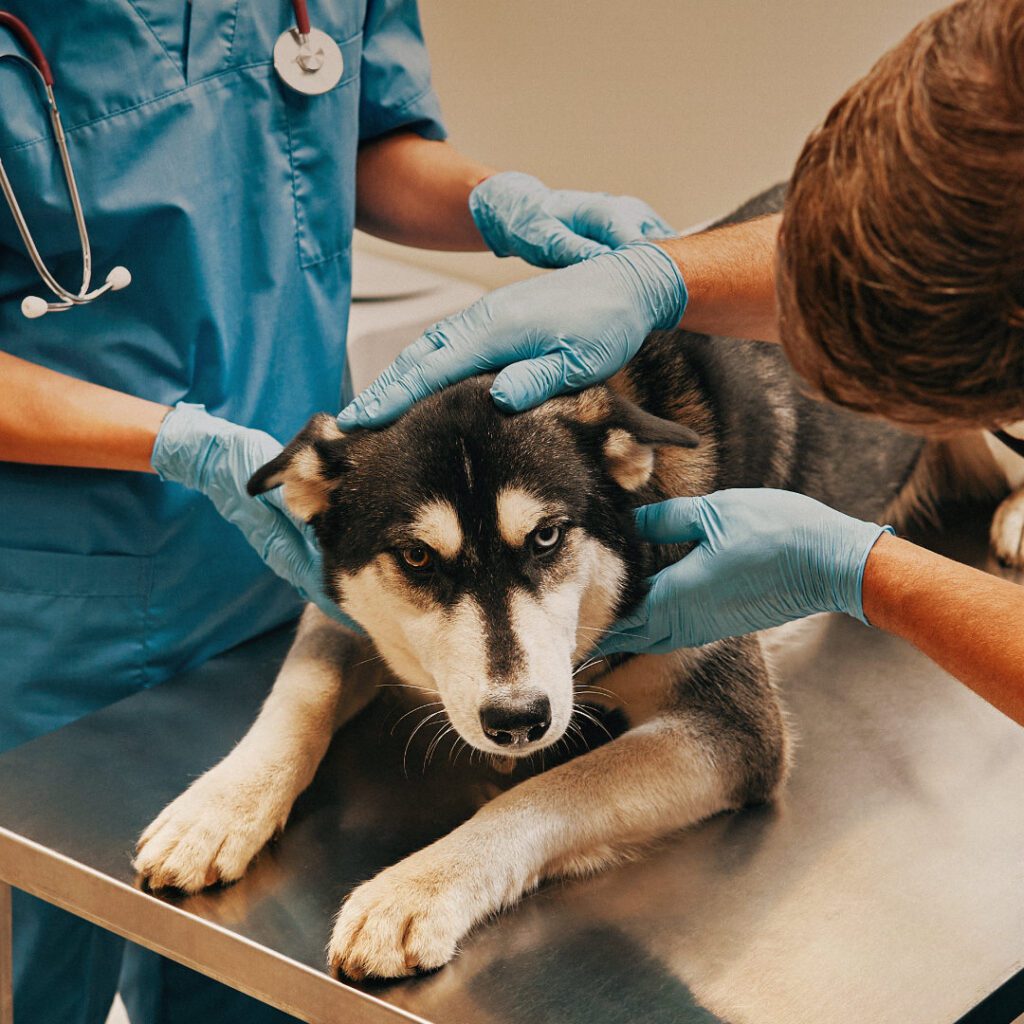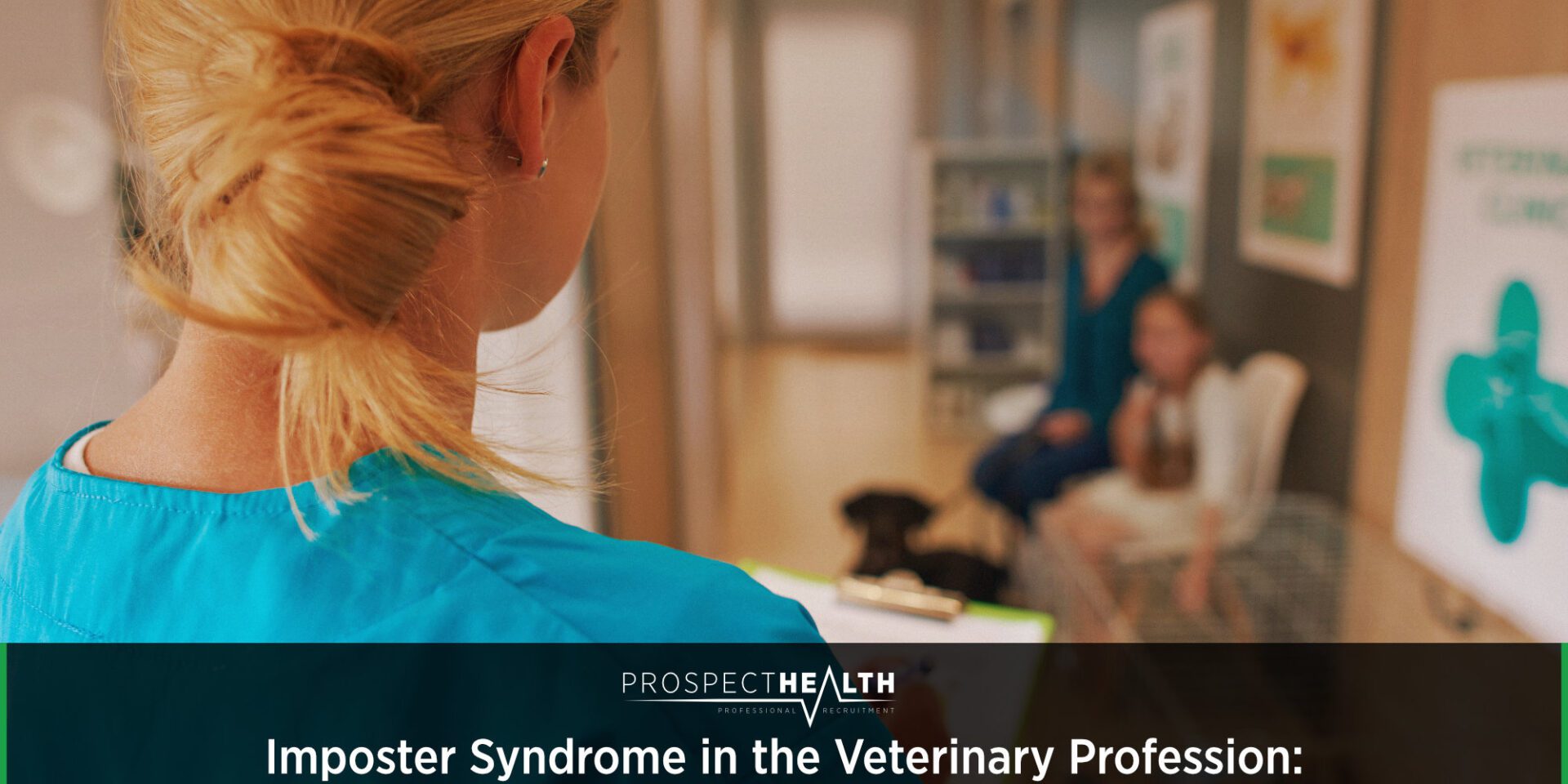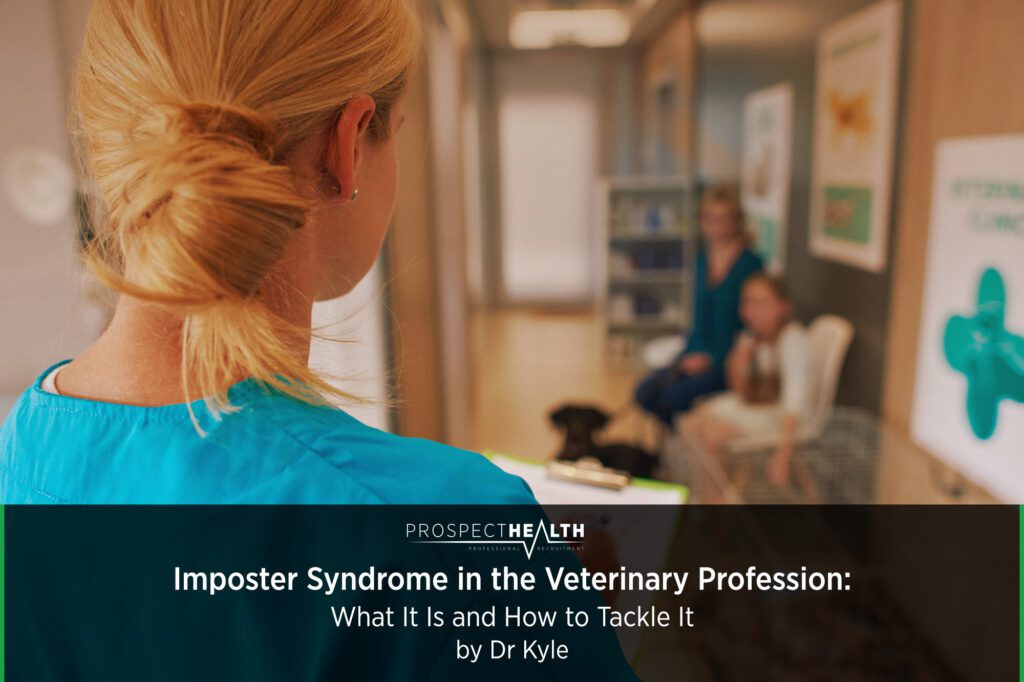October 21, 2025 | Vet Student | Veterinary
Veterinary CPD webinar
Imposter Syndrome in the Veterinary Profession: What It Is and How to Tackle It
By Dr Kyle
Starting a veterinary career can be exciting, but it often comes with hidden challenges. One of the most common, yet least talked about, is imposter syndrome. Many vet students and new graduates find themselves questioning their abilities, doubting their success, and living in fear of being “found out” as a fraud, despite clear evidence of their competence.
In our most recent webinar, Dr Kyle, a resident in veterinary anaesthesia, explored this important topic and shared insights on how imposter syndrome shows up in our profession and, more importantly, how to manage it.
If you would like to receive a copy of the webinar recording and be added to our mailing list for future webinars, please complete the form below:

Access our pre-recorded Veterinary Webinars
What Is Imposter Syndrome?
First identified in 1978, imposter syndrome (or “imposter phenomenon”) is the persistent belief that your success is down to luck rather than ability. High achievers, in particular, struggle to internalise their accomplishments and live with the nagging fear that others will one day discover they aren’t as capable as they appear.
Common traits include:
- Difficulty accepting praise
- Attributing success to luck or timing
- Fear of being exposed as a fraud
- Perfectionism and self-criticism
- Comparing yourself negatively to others
Where Does Imposter Syndrome Come From?
Research suggests imposter feelings often stem from early experiences:
- The underestimated child: Growing up overshadowed by a “smarter” sibling or relative, working hard to prove yourself, but never feeling validated.
- The over-praised child: Being told you’re exceptional from an early age, only to struggle when reality doesn’t always match those expectations.
Both paths can lead to the same outcome — self-doubt, over-preparation, procrastination, and the sense that success is undeserved.
Why Imposter Syndrome Matters in Veterinary Medicine
Several studies highlight just how widespread imposter syndrome is among healthcare professionals, including veterinarians.
- Around 30% of medical students and residents identify as imposters, with higher rates among women and international graduates.
- A 2020 study found that recent veterinary graduates were most affected, with feelings decreasing as clinical experience grew.
- Imposter syndrome has been linked to burnout, anxiety, and depression, especially when paired with the “soldier on” culture that discourages open discussion of mistakes or struggles.
Adverse events, such as the unexpected death of a patient or even a near miss, can amplify imposter feelings, fuelling perfectionism, harsh self-criticism, and fear of failure.
Building Resilience for Veterinarians Suffering from Imposter Syndrome
The good news is that imposter syndrome doesn’t have to define your career. Research points to four protective factors that help veterinarians build resilience:
- Learning from mistakes – framing setbacks as opportunities for growth.
- Drawing on past successes – reminding yourself of what you’ve already achieved.
- Seeking emotional support – from colleagues, mentors, friends, or family.
- Managing emotions – recognising that negative feelings will pass with time.
What Can Veterinarians Do to Reduce Imposter Syndrome?
- Acknowledge it exists: Expect imposter feelings, particularly at transition points, the start of vet school, first jobs, internships, or residencies.
- Talk about it: Create a culture where it’s safe to share struggles without judgment.
- Provide specific feedback: Vague praise can reinforce doubts, while concrete feedback builds genuine confidence.
- Access support: From peer groups to trained mentors and mental health professionals, multiple layers of support help prevent isolation.
- Promote wellness training: Incorporating imposter syndrome into veterinary school curricula and workplace inductions could prepare graduates to recognise and manage it early.
Final Thoughts on Veterinarians Struggling with Imposter Syndrome
Imposter syndrome is common; you are not alone if you’ve felt it. With awareness, honest conversations, and the right support, it’s possible to break free from the cycle of self-doubt and thrive in your veterinary career.
Some great websites to help Veterinarians with Imposter Syndrome
BVNA Mental Health Toolkit – British Veterinary Nursing Association
If you’re looking to move roles after graduation or if you’re looking for a role once you graduate our team can help
You can call us on 01423 813453 or email us at [email protected]
View all our Veterinary Jobs

Next Up: Veterinary CPD webinar
A Comprehensive Guide to Common Endocrine Disorders in Dogs and Cats by Dr Sarah Peters
Endocrine disorders are a frequent challenge in veterinary practice. Dr Sarah Peters recently recorded a webinar for us to help Veterinary Students understand the key clinical signs, diagnostics, and treatments that can make a significant difference in patient outcomes.
This blog covers the most common endocrinopathies you’ll encounter in dogs and cats, including diabetes insipidus, Cushing’s disease, Addison’s disease, thyroid disorders, acromegaly, and hyperparathyroidism.

Talk to a specialist
Chris Ellerker
Divisional Director – Dentistry and Locum Vet Divisions
I have over 12 years of recruitment experience, working my way up from Candidate Resourcer, Recruitment Consultant, Business Manager, to Divisional Director. I manage/run our Dentistry and Locum Vet teams here at Prospect Health. I thoroughly enjoy finding candidates a rewarding position that meets their expectations and supporting them through the process of registration/compliance (the fun bit), as well as throughout their placement/booking…
October 21, 2025 | Vet Student | Veterinary



